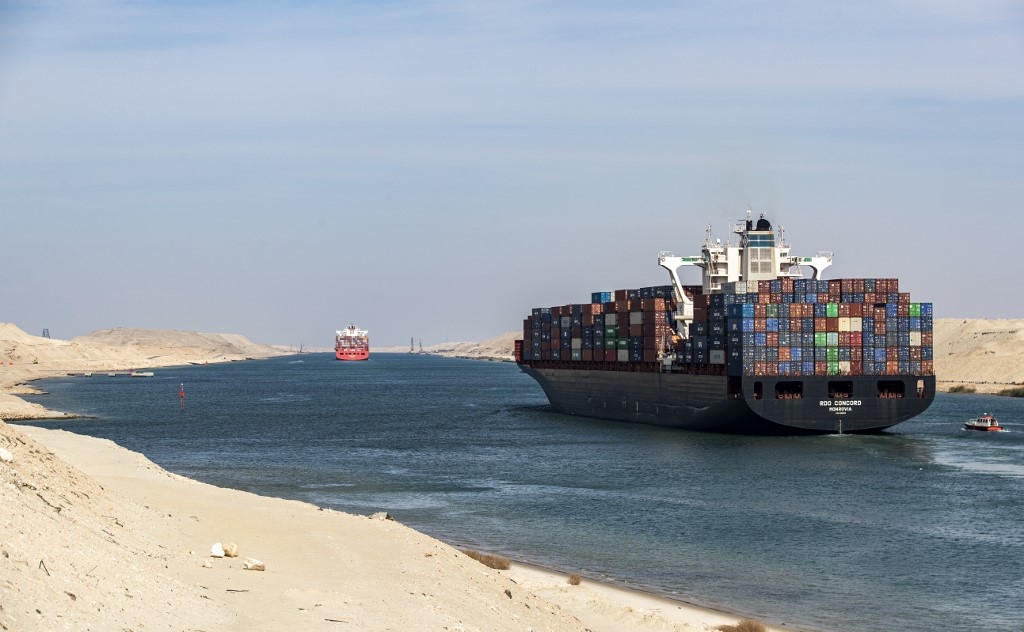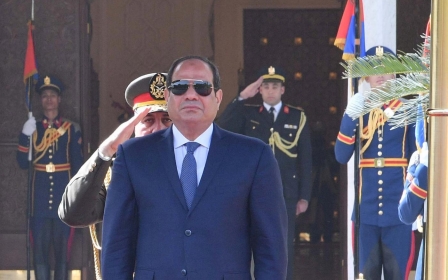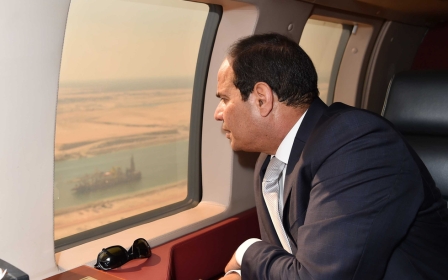Arabic press review: Plans for Israel-UAE canal enrage Egypt

Canal triggers major dispute between Egypt and UAE
The planned digging of a new canal between Israel and the United Arab Emirates has reportedly enraged Egypt, which views the project as a threat to its strategic Suez Canal.
According to a report by al-Araby al-Jadeed (The New Arab) online newspaper on Friday, a major dispute between the UAE and Egypt has erupted due to "preliminary arrangements and consultations between Abu Dhabi and Tel Aviv regarding the digging of a new water canal, similar to the Suez Canal, connecting the Red Sea and the Mediterranean".
Sources told the paper that there is a widespread state of indignation within Egyptian government circles due to the recent steps taken by the UAE and Israel, at a time when Cairo is making noticeable efforts to serve the interests of the two states.
The sources stated that the danger of this plan lies in the fact that the fate and future of the Suez Canal, one of the primary sources of income for the Egyptian economy, might be jeopardised.
New MEE newsletter: Jerusalem Dispatch
Sign up to get the latest insights and analysis on Israel-Palestine, alongside Turkey Unpacked and other MEE newsletters
The same sources indicated that the new canal, which Israel allegedly intends to dig, will link the Mediterranean Sea to the Red Sea at the city of Eilat in the Gulf of Aqaba, since crossing to the Red Sea from that point became possible after Egypt ceded the island of Tiran to Saudi Arabia.
Egypt no longer has authority over the sea passage between the Strait of Tiran and the Egyptian coast as it has become an international maritime route after the controversial agreement with Riyadh.
The sources added that Egypt engaged in high-level talks with Saudi Arabia to urge Riyadh to intervene and stop the UAE plan.
The New Arab quoted an Egyptian source as saying: "We are aware that the matter is still under discussion. However, we consider Abu Dhabi's initial response to this plan as a stab in the back".
Jordan expels Palestinian ex-prisoner
Jordanian authorities on Thursday declared the liberated Palestinian prisoner Nizar Al-Tamimi persona non grata and asked him to leave the country, according to sources who spoke to Arabi21 news site.
Nizar al-Tamimi is the husband of Ahlam al-Tamimi, who served time in Israeli prisons. Ahlam, who holds Jordanian citizenship, is wanted in the United States.
Translation: The first statement from the released prisoner Nizar al-Tamimi after his deportation from Jordan: "The security authorities asked me to leave immediately from Jordan, said their decision is final and irrevocable and is not subject to discussion or retraction under any circumstances.
Washington had previously requested her extradition, but Amman refused due to the absence of a law allowing the extradition of Jordanian citizens abroad.
Her husband only has Palestinian citizenship, and is not on any wanted list by any country.
A Jordanian source told Arabi21 that Nizar al-Tamimi had been renewing his residence permit every three months, but this time Jordanian authorities refused to extend his stay, and asked him to leave the country, even though his wife is a Jordanian national.
The source said that Nizar left on Thursday to Doha despite attempts to mediate and solve the issue without having him deported.
The source confirmed that “the decision to deport Nizar al-Tamimi is linked to his wife's involvement in a suicide attack against Israelis during the Second Palestinian Intifada, which prompted the US authorities to pursue her ever since”.
The source also considered that “deporting Nizar al-Tamimi would cause major problems for the family, especially since his wife's departure from Jordan might threaten her safety and expose her to arrest”.
The Trump administration indicated a few months ago its intention to cut off aid to Jordan as a way to pressure the kingdom’s authorities to hand over Ahlam to Washington, Arabi21 reported.
In 2013, the US Department of Justice put Ahlam al-Tamimi on the FBI's most wanted terrorists list, and charged her with "conspiring to use a weapon of mass destruction against US nationals outside the United States".
Three ministers of Arab origin in new Belgian government
The new Belgian government, which was announced Thursday, included two ministers of Moroccan origin, al-Quds al-Arabi newspaper reported.
Ministers of the new federal government, led by the Flemish liberal Prime Minister Alexander de Croo, were announced on Thursday in the Belgian capital, 16 months after the legislative elections.
The Belgian government includes 20 members, half of them women. According to the newspaper, the two ministers of Moroccan descent are Zakia Khattabi, minister of environment and climate, and Meryame Kitir, minister of development and cooperation.
Khattabi, 44, was raised by Moroccan parents. She received a Catholic education, before going to college and graduating with a degree in social work.
In 2009, Khattabi was elected MP for the first time, and then held the post of a municipal adviser. She was re-elected in 2019 to represent people in parliament, and was nominated for the post of a constitutional court judge in May 2020.
Kitir, 40, is a Flemish socialist who previously worked for the Ford Motor Company. She grew up in Maasmechelen with two Moroccan parents. Her father came to Belgium in the 1960s. She has 11 brothers and sisters. Her mother died when she was two years old, and her father died when she was 18.
The youngest minister in the new Belgian government, Sami Mahdi, 32, who is originally from Iraq, was appointed as state of secretary for asylum policy and migration.
*Arabic press review is a digest of reports that are not independently verified as accurate by Middle East Eye
Middle East Eye delivers independent and unrivalled coverage and analysis of the Middle East, North Africa and beyond. To learn more about republishing this content and the associated fees, please fill out this form. More about MEE can be found here.




